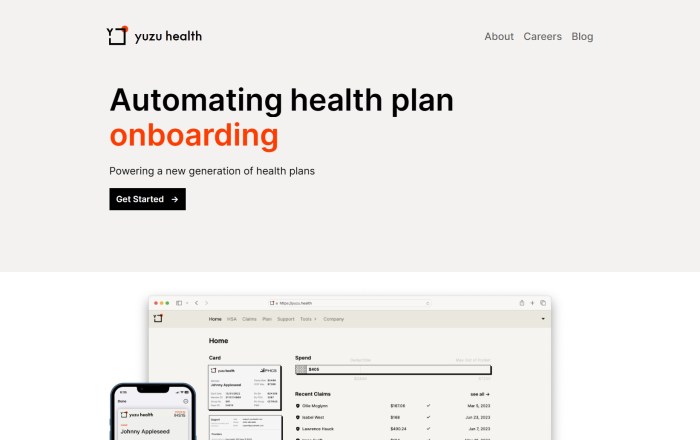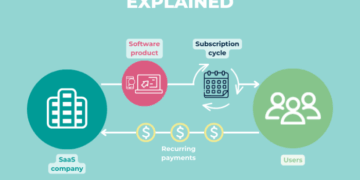Embarking on the journey of creating a startup comes with many challenges, one of the most crucial being access to affordable health plans for founders. In this guide, we will delve into the intricacies of navigating the complex world of healthcare options for startup founders, offering valuable insights and practical advice to help you make informed decisions.
Overview of Affordable Health Plans for Startup Founders

Startup founders often face unique challenges when it comes to securing affordable health insurance for themselves and their employees. The importance of having access to affordable health plans cannot be overstated, as it directly impacts the well-being and productivity of the team.
Challenges in Securing Affordable Health Insurance
One of the main challenges startup founders face is the high cost of health insurance premiums. Without the bargaining power of larger companies, startups may struggle to find cost-effective options that provide adequate coverage. Additionally, the lack of stability and predictability in revenue streams can make it difficult to commit to long-term healthcare plans.
Types of Health Plans Available to Startup Founders
- Individual Health Plans:Startup founders can opt for individual health plans, which may offer flexibility in terms of coverage and cost. However, these plans may not provide comprehensive benefits compared to group plans.
- Group Health Plans:Collaborating with other startups or joining industry-specific group health plans can help reduce costs through economies of scale. Group plans often offer better coverage and lower premiums.
- Health Savings Accounts (HSAs):HSAs allow startup founders to save money tax-free for medical expenses. This can be a valuable option for those looking to manage healthcare costs efficiently.
- Catastrophic Health Insurance:This type of plan offers coverage for major medical expenses and is typically more affordable than comprehensive plans. However, it comes with high deductibles and may not cover routine care.
Factors to Consider When Choosing Health Plans
When selecting health plans for their startup, founders need to carefully evaluate various factors to ensure they choose the most suitable option for their team's needs.
Impact of Startup Size and Number of Employees
The size of a startup and the number of employees play a crucial role in determining the available health plan options. Smaller startups may opt for individual or small group plans, while larger startups with more employees might have access to more comprehensive group plans with better coverage options.
Significance of Coverage Benefits and Limitations
It is essential for startup founders to thoroughly review the coverage benefits and limitations of each health plan. Understanding what services and treatments are covered, as well as any exclusions or restrictions, can help founders make informed decisions that align with the healthcare needs of their team members.
Options for Affordable Health Plans
When it comes to finding affordable health plans for startup founders, there are several options to consider. Let's explore some of the most common choices available:
Government-Sponsored Health Insurance Options
Government-sponsored health insurance programs, such as Medicaid and CHIP, can provide low-cost or free health coverage for eligible individuals. Startup founders should check if they qualify for these programs based on their income and other factors.
Benefits of Joining a Startup Accelerator Program
Joining a startup accelerator program can offer startup founders access to affordable health plans through group rates negotiated by the accelerator. This can help reduce costs and provide comprehensive coverage for founders and their employees.
Individual vs. Group Health Insurance Plans
Startup founders can choose between individual health insurance plans and group health insurance plans. Individual plans may offer more flexibility but can be more expensive, while group plans often provide cost savings and benefits such as coverage for pre-existing conditions.
Tips for Managing Health Care Costs

As a startup founder, managing health care costs is crucial to ensure the financial stability of your business. By implementing strategies to control expenses and prioritize preventive care, you can minimize long-term healthcare costs and protect your company's bottom line.
Importance of Preventive Care
One of the most effective ways to reduce long-term healthcare expenses is to prioritize preventive care. Regular check-ups, screenings, and vaccinations can help detect and prevent serious health issues before they become costly to treat. By investing in preventive care for yourself and your employees, you can save money on medical bills and maintain a healthier workforce.
Health Savings Accounts (HSAs) and Flexible Spending Accounts (FSAs)
Health savings accounts (HSAs) and flexible spending accounts (FSAs) are valuable tools that can help you manage health care costs more effectively. These accounts allow you to set aside pre-tax dollars to cover medical expenses, such as co-pays, prescriptions, and other out-of-pocket costs.
By contributing to an HSA or FSA, you can lower your taxable income and save money on eligible health care expenses.
Ending Remarks
As we conclude this guide on Affordable Health Plans for Startup Founders, it is evident that securing the right health insurance is a critical aspect of building a successful startup. By understanding the various factors to consider, exploring different options, and implementing effective cost management strategies, founders can prioritize their health and well-being while focusing on the growth of their ventures.
Answers to Common Questions
What are the key factors to consider when choosing health plans as a startup founder?
Startup founders should consider factors like cost, coverage options, network providers, and the specific needs of their employees when selecting health plans.
Are there any government-sponsored health insurance options available for startup founders?
Yes, startup founders can explore options like the Small Business Health Options Program (SHOP) offered through the Affordable Care Act for subsidized health insurance.
How can health savings accounts (HSAs) or flexible spending accounts (FSAs) help in managing healthcare costs?
HSAs and FSAs allow startup founders to set aside pre-tax funds for medical expenses, providing a tax-advantaged way to cover healthcare costs.
Embarking on the journey of creating a startup comes with many challenges, one of the most crucial being access to affordable health plans for founders. In this guide, we will delve into the intricacies of navigating the complex world of healthcare options for startup founders, offering valuable insights and practical advice to help you make informed decisions.
Overview of Affordable Health Plans for Startup Founders

Startup founders often face unique challenges when it comes to securing affordable health insurance for themselves and their employees. The importance of having access to affordable health plans cannot be overstated, as it directly impacts the well-being and productivity of the team.
Challenges in Securing Affordable Health Insurance
One of the main challenges startup founders face is the high cost of health insurance premiums. Without the bargaining power of larger companies, startups may struggle to find cost-effective options that provide adequate coverage. Additionally, the lack of stability and predictability in revenue streams can make it difficult to commit to long-term healthcare plans.
Types of Health Plans Available to Startup Founders
- Individual Health Plans:Startup founders can opt for individual health plans, which may offer flexibility in terms of coverage and cost. However, these plans may not provide comprehensive benefits compared to group plans.
- Group Health Plans:Collaborating with other startups or joining industry-specific group health plans can help reduce costs through economies of scale. Group plans often offer better coverage and lower premiums.
- Health Savings Accounts (HSAs):HSAs allow startup founders to save money tax-free for medical expenses. This can be a valuable option for those looking to manage healthcare costs efficiently.
- Catastrophic Health Insurance:This type of plan offers coverage for major medical expenses and is typically more affordable than comprehensive plans. However, it comes with high deductibles and may not cover routine care.
Factors to Consider When Choosing Health Plans
When selecting health plans for their startup, founders need to carefully evaluate various factors to ensure they choose the most suitable option for their team's needs.
Impact of Startup Size and Number of Employees
The size of a startup and the number of employees play a crucial role in determining the available health plan options. Smaller startups may opt for individual or small group plans, while larger startups with more employees might have access to more comprehensive group plans with better coverage options.
Significance of Coverage Benefits and Limitations
It is essential for startup founders to thoroughly review the coverage benefits and limitations of each health plan. Understanding what services and treatments are covered, as well as any exclusions or restrictions, can help founders make informed decisions that align with the healthcare needs of their team members.
Options for Affordable Health Plans
When it comes to finding affordable health plans for startup founders, there are several options to consider. Let's explore some of the most common choices available:
Government-Sponsored Health Insurance Options
Government-sponsored health insurance programs, such as Medicaid and CHIP, can provide low-cost or free health coverage for eligible individuals. Startup founders should check if they qualify for these programs based on their income and other factors.
Benefits of Joining a Startup Accelerator Program
Joining a startup accelerator program can offer startup founders access to affordable health plans through group rates negotiated by the accelerator. This can help reduce costs and provide comprehensive coverage for founders and their employees.
Individual vs. Group Health Insurance Plans
Startup founders can choose between individual health insurance plans and group health insurance plans. Individual plans may offer more flexibility but can be more expensive, while group plans often provide cost savings and benefits such as coverage for pre-existing conditions.
Tips for Managing Health Care Costs

As a startup founder, managing health care costs is crucial to ensure the financial stability of your business. By implementing strategies to control expenses and prioritize preventive care, you can minimize long-term healthcare costs and protect your company's bottom line.
Importance of Preventive Care
One of the most effective ways to reduce long-term healthcare expenses is to prioritize preventive care. Regular check-ups, screenings, and vaccinations can help detect and prevent serious health issues before they become costly to treat. By investing in preventive care for yourself and your employees, you can save money on medical bills and maintain a healthier workforce.
Health Savings Accounts (HSAs) and Flexible Spending Accounts (FSAs)
Health savings accounts (HSAs) and flexible spending accounts (FSAs) are valuable tools that can help you manage health care costs more effectively. These accounts allow you to set aside pre-tax dollars to cover medical expenses, such as co-pays, prescriptions, and other out-of-pocket costs.
By contributing to an HSA or FSA, you can lower your taxable income and save money on eligible health care expenses.
Ending Remarks
As we conclude this guide on Affordable Health Plans for Startup Founders, it is evident that securing the right health insurance is a critical aspect of building a successful startup. By understanding the various factors to consider, exploring different options, and implementing effective cost management strategies, founders can prioritize their health and well-being while focusing on the growth of their ventures.
Answers to Common Questions
What are the key factors to consider when choosing health plans as a startup founder?
Startup founders should consider factors like cost, coverage options, network providers, and the specific needs of their employees when selecting health plans.
Are there any government-sponsored health insurance options available for startup founders?
Yes, startup founders can explore options like the Small Business Health Options Program (SHOP) offered through the Affordable Care Act for subsidized health insurance.
How can health savings accounts (HSAs) or flexible spending accounts (FSAs) help in managing healthcare costs?
HSAs and FSAs allow startup founders to set aside pre-tax funds for medical expenses, providing a tax-advantaged way to cover healthcare costs.








